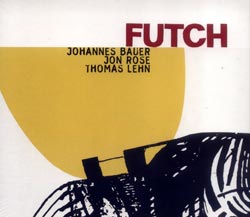
The debut release of trombonist Johannes Bauer, Australian violinist Jon Rose and analog synth player Thomas Lehn, mutated improvisation for a Futched world.
Out of Stock
Quantity in Basket: None
Log In to use our Wish List
Shipping Weight: 5.00 units
Sample The Album:
Johannes Bauer-trombone
Thomas Lehn-analogue synthesizer
Jon Rose-violin, electronics
Click an artist name above to see in-stock items for that artist.
UPC: 4250079757787
Label: Jazzwerkstatt
Catalog ID: JW010
Squidco Product Code: 11073
Format: CD
Condition: New
Released: 2008
Country: Germany
Tracks 1-3 recorded on June 2, 2006 at Espace Multimedia Gantner, Bourogne, France. Tracks 4-5 recorded on June 1, 2006 at t-u-b-e Klanggalerie/Einstein Kulturzentrum, Munich, Germany by Thomas Lehn.
"Having been around for only the last few years, trombonist Johannes Bauer, synth player Thomas Lehn and violinist Jon Rose have finally seen it fit to release their debut release. On his web-site, Jon Rose ponders the importance of "Futch". He rambles on about "Futch" and its variations as well as its importance in today's society:
-Jazzwerkstatt"When FUTCH arrived, there were people who said 'Oh there is FUTCH' as if it had always existed - that there had always been FUTCH.
You mean there was a time that could be considered pre-FUTCH?
Is it of use to anybody? Can you sell it?
Can you catch the FUTCH? These days you can never be too careful who you shake hands with. I didn't realise it was so intense - dangerous.
Wrong again. FUTCH is behavioural and not yet a medical condition. Whole populations could be infected by chronic FUTCH but it is too soon to say. As a virus, it could take over the leadership of the free world and cause a breakdown of the social will. We might forget who we are and where we are going. It could result in a breakdown in the transmission of language."
None the wiser in Rose's explanation of the Futch phenomenon, all I know is these recordings from June of last year are a worthwhile investment of the listener's time. Deriving from the German slang, "futsch" denotes someone who is gone, spoiled or simply fucked up. On first inspection, we grapple with the trombone-violin duo shifts presented by Bauer and Rose. As the shifts between the hearty trombone and the pinnacle and pointillistic violin squeaks escalate, the two are joined by the glitchy analogue synth played by Thomas Lehn. As the track moves on, the violin soundscapes are replaced by even more hearty trombone mutations that are played in tandem with synth babblings. Near the end of the first 25 minute track, Rose is found plucking the strings lightly, while Lehn's synth work is slowed down, which is when Rose enters the picture with electronics scrapes. Lehn seems to act like a glue between the polar opposites of the trombone and the violin worlds. There's much common-ground evident in all three player's work. Their interaction is flawlessly realized and immensely well played. I find this surprising considering this is a relatively young ensemble. As the disc comes to an end, I'm already a convert. Jazz, improvised music or simply new music - "Futch" rules.

The Squid's Ear!
Artist Biographies
• Show Bio for Johannes Bauer "Johannes "Hannes" Bauer (22 July 1954 - 6 May 2016) was a German trombonist of improvised music and free jazz. He was the brother of the trombonist Conny Bauer. He was born in Halle. From 1979 onwards, he worked as a freelance musician in Berlin. Among others, he worked with the following groups: the Manfred Schulze Wind Quintet, Doppelmoppel (with Conny Bauer, Uwe Kropinski, and Helmut "Joe" Sachse), Slawterhaus (with Jon Rose, Peter Hollinger, and Dietmar Diesner), Futch (with Thomas Lehn and Jon Rose), Ken Vandermark Territory Band, and the Peter Brötzmann Tentet. Bauer died on 6 May 2016 at the age of 61." ^ Hide Bio for Johannes Bauer • Show Bio for Thomas Lehn "Thomas Lehn was Born in Fröndenberg (Germany) in 1958. Since the early 1980s Thomas Lehn has been working as a author and performer of contemporary music. After studying recording engineering - piano with Prof. Wilfried Kassebaum - at the Music Academy of Detmold in Germany, studies at the Music Academy of Cologne with Peter Degenhardt and Prof. Klaus Oldemeyer (classical piano) and with Frank Wunsch and Francis Coppieters (jazz piano) completed his academical education. In the 80ies he took part on courses of Studio for pianistic interpretation held by Prof. Jürgen Uhde. As an interpreting pianist he has been playing concerts since 1982 - performing both contemporary new music including numerous first performances and traditional composed music of the classical and romantical period. In 1989 he initiated the chamber ensemble Trio Dario and four years later the Mengano Quartett, performing compositions of the contemporary avant-garde, in particular numerous first performances of comissioned works. Developed parallel to his work as a pianist, since the early 1990s his major and widely reknown work has been performing and producing live-electronic music. Rooted in the experience of a wide spectrum of musical fields based on his background as an interpreting and improvising pianist in classical-, contemporary and jazz-music and having been involved in numerous other projects like music theatre, dance, multi-media, studio pre-/post-production etc., he has been developing an individual 'language' of electronic music. The electronic equipment he uses consists of analogue synthesizers of the late 1960s, and since 1994 in particular the EMS Synthi A. Besides the substantial sound qualities of its analogue synthesis, the facilities of this modular instrument - for example to modify electronic sounds very directly as well as to combine and to control several parameters of the sound synthesis at the same time - allows him to spontaneously act in close contact with the various structural degrees of the musical process. In 2000 his solo album Feldstärken had been released on German label Random Acoustics. Up today, his discography enclosures about 80 CD publications. Numerous appearances at major international festivals of contemporary musics and concerts tours in Australia, Austria, Belgium, Canada, Croatia, Czech Republic, Denmark, England, Finland, France, Germany, Hungaria, Ireland, Israel, Italy, Japan, Lebanon, The Netherlands, New Zealand, Norway, Poland, Portugal, Serbia, Scotland, Slovakia, Slovenia, Spain, Sweden, Switzerland and the USA give evidence of his international profile and recognition. He has been involved in projects promoted and/or supported by the Goethe-Institutes in Belgrade, Boston, Bratislava, Budapest, Chicago, Copenhagen, Glasgow, Lille, Lissabon, London, Manchester, Marseille, Milano, Montreal, Palermo, Rome, San Francisco, Tel Aviv, Tokyo, Toronto, Warsaw, Wellington and York. His musical activities enclosure long term and newer ensemble collaborations as well as involvements in numerous specific single projects. Long term collaborations are ensembles like KONK PACK, TOOT, THERMAL, FUTCH, MIMEO, SPEAK EASY, 6IX, VARIO-34, as well as the duo works with Marcus Schmickler, Tiziana Bertoncini, Gerry Hemingway, Paul Lovens, Frédéric Blondy Urs Leimgruber and John Butcher. More recently formed ensembles are the duos with Benoît Moreau and with the video artist Kjell Bjørgeengen, trio formations with John Butcher involving pianists John Tilbury and Matthew Shipp. Further he is pianist and founding member of the ensemble]h[iatus, an ensemble for interpretation and improvisation of contemporary music, whichs members are all experienced interpreters and improvisers. The ensemble compiles concert programs integrating/alternating notated and real-time-created contemporary music. It has been first-performing commissioned works by Vinko Globokar, Peter Jakober, Jennifer Walshe, Anthony Pateras besides performing compositions of the contemporary repertoire. Besides performing his own electronic music, in the recent years Thomas Lehn became more active as a synthesizer interpreter of electronic compositions. The realisation of Boguslav Schaeffer's Electronic Symphony - live performed in 2010 and 2011 - has been documented on the CD PRES Scores on polish label Bolt/Monotype. In 2012 he world premierred OCCAM VI for synthesizer solo by Éliane Radigue at Berghain Berlin during festival Faithful! and - together with KlangForum Wien - dort for synthesizer and 15 piece ensemble by Austrian composer Peter Jakober at musikprotokoll Graz and at Konzerthaus Vienna." ^ Hide Bio for Thomas Lehn • Show Bio for Jon Rose "Jon Rose started playing the violin at 7 years old, after winning a music scholarship to King's School Rochester. He gave up formal music education at the age of 15 and from then on, was mostly self-taught. Throughout the 1970's, first in England then in Australia, he played, composed and studied in a large variety of music genres - from sitar playing to country & western; from 'new music' composition to commercial studio session work; from Bebop to Italian club bands; from Big Band serial composition to Sound Installations. He became the central figure in the development of Free Improvisation in Australia, performing in almost every Art Gallery, Jazz and Rock club in the country - either solo or with an international pool of improvising musicians called The Relative Band. In 1986, he moved to Berlin in order to more fully realise his on-going project (of some 25 years): The Relative Violin). This is the development of a Total Artform based around the one instrument. Necessary to this concept has been innovation in the fields of new instrument design (over 20 deconstructed violin instruments including the legendary double piston triple neck wheeling violin, environmental performance (eg. playing fences in the Australian outback using the violin as a bow), new instrumental techniques (tested sometimes in uninterrupted marathon concerts of up to 12 hours long), both analogue (built into the violins themselves) and the more recently inter-active electronics (3 bowing to Midi systems)... plus using the mediums of radio (over 20 major International productions for radio stations like ABC, BBC, WDR, SR, BR, Radio France, RAI, ORF, SFB, etc including 'Eine Violine für Valentin', 'The Long Sufferings of Anna Magdalena Bach' and 'Breadfruit'), live-performance-film, video and television to create a new, alternative, personal and revised history for THE VIOLIN. Jon Rose performs his group projects and solo music in upwards of 50 concerts every year - in North America, Japan, Australia, South America, China, Scandinavia and just about every country in West & East Europe. He is featured regularly in the main festivals of New Music, Jazz and Sound Art e.g. Strasbourg New Music Festival; New Music America; Moers New Jazz Festival; European Media Festival; The Vienna Festival; Ars Elektronica; The Northsea Jazz Festival; Dokumenta; Roma-Europa Festival; Festival D'Automne; Festival Musique Actuelle; The Berlin Jazz Festival, etc. Rose has also been invited to curate Contemporary Music Festivals in Germany (e.g. Berlin Urbane Aboriginale) and Austria (e.g. Wels 'Unlimited'). He has curated his own festival "String 'em up" of radical string players and their instruments, taking place in Podewil, Berlin in 1998 and Dodorama and V2, Rotterdam in 1999 , Tonic, New York in 2000, Mains D'Oeuvres, Paris in 2002, and IPR, New york in 2010. Jon Rose has appeared on over 100 records and CD's; He has worked with many of the innovators and mavericks in contemporary music such as The Kronos String Quartet, John Zorn, Derek Bailey, Butch Morris, Barry Guy, Fred Frith, Joelle Leandre, Connie Bauer, Johannes Bauer, Chris Cutler, Otomo Yoshihide, KK Null, Alex Von Schlippenbach, Toshinori Kondo, Francis-Marie Uitti, Alvin Curran, Evan Parker, Paul Lovens, Phil Minton, Shelley Hirsh, Mark Dresser, Ben Patterson, Emmett Williams, John Cage, Joel Ryan, Peter Kowald, Borah Borgmann, Tristan Honsinger, Mari Kimura, The Soldier String Quartet, Borah Bergman, Sainko, Tristan Honsinger, Tony Oxley, Cor Fuhler, Steve Beresford, Eugene Chadbourne, Bob Ostertag, Malcolm Goldstein, Jim Denley, David Moss, Miya Masaoka, Barre Phillips, Roger Turner, George Lewis, Gunter Christmann, Davy Williams, Misha Mengelberg, Elliott Sharpe, Elena Kats Chernin, Lauren Newton, Uli Gumpert, Christian Marclay, Richard Barret, Pierre Henry, etc). In 1989, in co-operation with New Music Festival 'Inventionen' (Berlin), he directed the first 'Relative Violin Festival' with over 50 violinists from around the world.In 1991, he directed "Das Rosenberg Museum", a surrealist satire commissioned by German Television's ZDF, this piece later became the first interactive video ever to be controlled by a violin bow. Other films/videos include 'Café Central' and 'Shopping' (both made for ORF, Austria). The Rosenberg Museum does actually exist. Jon Rose is also the originator of 4 books - The Pink Violin and Violin Music in the Age of Shopping (both published by NMA, Melbourne); "Music of Place: Reclaiming A Practice", and rosenberg 3.0 - not violin music. Jon Rose is currently performing Palimpolin - Hyperstring 4, one of a number of highly acclaimed works for violin and inter-active software. In addition there are performances of Violin Factory featuring large string orchestras and interactive video in Europe and Australia. His group projects include Strung, Violin Music in the Age of Shopping (with the likes of Chris Cutler, Lauren Newton, Otomo Yoshihide, etc); the infamous Berlin Noise-Impro-Rock Band Slawterhaus (with Johannes Bauer, Dietmar Diesner & Peter Hollinger); The interactive 'Badminton' game Perks, based on the musical innovations and perversions of Australian freak composer Percy Grainger; and there are five established improvising trios which are currently available... The Exiles (with Tony Buck & Joe Williamson), and The Kryonics (with Aleks Kolkowski & Matthias Bauer), Artery (with Chris Abrahams and Clayton Thomas), Futch (with Thomas Lehn and Johannes Bauer), Strike (with Clayton Thomas and Mike Majkowski) and the bicycle-powered chamber orchestra composition Pursuit. The duo Temperament was formed in 2000 with pianist Veryan Weston, specialising in improvisation with different tunings (Just, 19 tone, etc) for the keyboards and various scordatura for the violins. Other on going projects are Australia Ad Lib which documents alternative music practice in Australia and the duo Great Fences of Australia, a collaboration with US violinist Hollis Taylor. Since 2001 Jon Rose is again based full time in Australia: in 2005 he finished a major commission Pannikin for The Melbourne Festival, and was awarded a 2 year fellowship from The Australia Council to research and develop The Ball Project. In 2009 The Kronos String Quartet and The Sydney Opera House commissioned Music from 4 Fences. From 2008-2010 Jon Rose collaborated with Robin Fox on the Transmission Project and he received a further grant in 2009 from The Australia Council to work with KMI in the USA, on the K-Bow. He is also a member of the Advisory Council for The International Society for Improvised Music (ISIM). The Music Board of The Australia Council has honored Jon Rose with its most prestigious award for life time achievement and contribution to Australian music, The Don Banks Prize 2012. Currency House has recently published his call to action "Music of Place: Reclaiming A Practice". " ^ Hide Bio for Jon Rose
11/18/2024
Have a better biography or biography source? Please Contact Us so that we can update this biography.
11/18/2024
Have a better biography or biography source? Please Contact Us so that we can update this biography.
11/18/2024
Have a better biography or biography source? Please Contact Us so that we can update this biography.
Track Listing:
1. Futch F 24:30
2. Futch U 11:01
3. Futch T 4:33
4. Futch C 9:17
5. Futch H 4:09
Improvised Music
Jazz
Rose, Jon
Electro-Acoustic
Electro-Acoustic Improv
European Improv, Free Jazz & Related
Rose, Jon
Trio Recordings
Australian Improvisers, Composers and Experimenters
Search for other titles on the label:
Jazzwerkstatt.


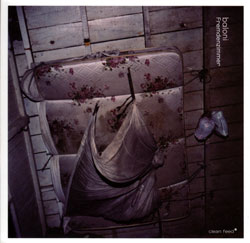
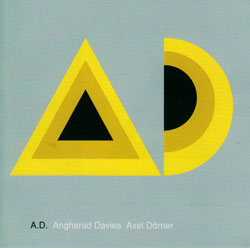
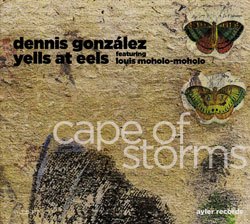
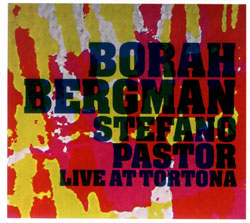
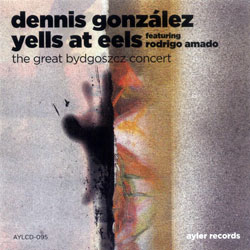
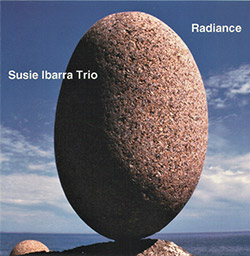
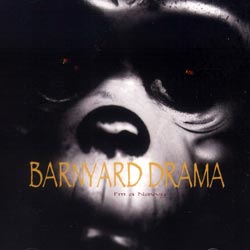
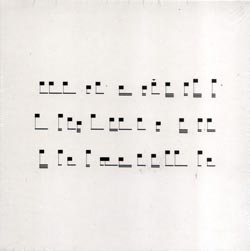
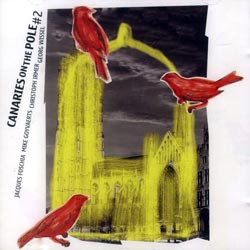
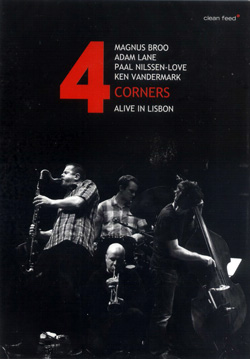
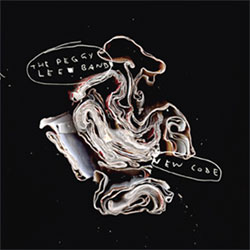
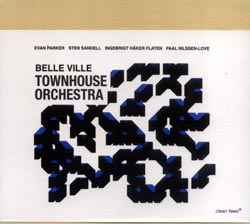
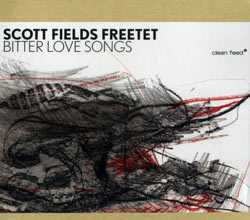
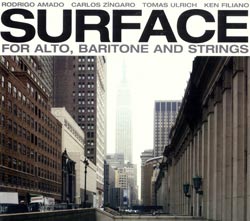
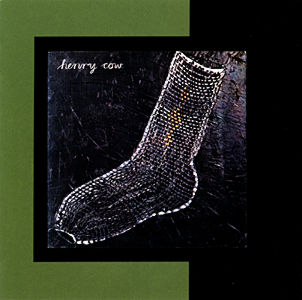














![Barker / Parker / Irabagon: Bakunawa [VINYL]](https://www.teuthida.com/productImages/misc4/35533.jpg)
![Blaser, Samuel / Marc Ducret / Peter Bruun: Dark Was The Night, Cold Was The Ground [VINYL 10-inch]](https://www.teuthida.com/productImages/misc4/35492.jpg)










![Warren, Kenny (Warren / Hoffman / Ellman): Sweet World [VINYL]](https://www.teuthida.com/productImages/misc4/35451.jpg)


![Blake, Ran / Dave Knife Fabris: Live Amsterdam 2006, First Visit [CD + POSTCARDS]](https://www.teuthida.com/productImages/misc4/35275.jpg)
![Sanna, Claudio: Compositori Sardi Contemporanei II [2 CDs]](https://www.teuthida.com/productImages/misc4/35317.jpg)












![Nevai, Nandor: <<The PRICE of FRONTIER>> Book 1: FULK [BOOK + 4 CDs]](https://www.teuthida.com/productImages/misc4/35464.jpg)
![Nevai, Nandor: <<The PRICE of FRONTIER>> Book 2: MARTIAL [BOOK + 4 CDs]](https://www.teuthida.com/productImages/misc4/35465.jpg)
![Nevai, Nandor: <<The PRICE of FRONTIER>> Book 3: JASSOM [BOOK + 4 CDs]](https://www.teuthida.com/productImages/misc4/35466.jpg)
![Nevai, Nandor: <<The PRICE of FRONTIER>> Book 4: HARD-WON [BOOK + 4 CDs]](https://www.teuthida.com/productImages/misc4/35467.jpg)






![DNS: Taking Big Bites Of The Khandas Three Cafes Deep [2 CDs]](https://www.teuthida.com/productImages/misc4/35334.jpg)




![Cleaver, Gerald: The Process [VINYL]](https://www.teuthida.com/productImages/misc4/34966.jpg)




![Alva Noto: HYbr:ID II [VINYL 2 LPs]](https://www.teuthida.com/productImages/misc4/35201.jpg)

![Baron, Derek / Luke Martin: Distinct and Concealed [CASSETTE + DOWNLOAD]](https://www.teuthida.com/productImages/misc4/35079.jpg)

![Lyle, Erica Dawn : Colonial Motels [CASSETTE + DOWNLOAD]](https://www.teuthida.com/productImages/misc4/35080.jpg)







![Alva Noto: HYbr:ID III [VINYL 2 LPs]](https://www.teuthida.com/productImages/misc4/35011.jpg)
![Kubisch, Christina / Trondheim Voices: Stromsanger 2022 For Six Voices And Electromagnetic Waves [VINYL]](https://www.teuthida.com/productImages/misc4/34628.jpg)








![Zurria, Manuel: Fame di Vento [3 CDs]](https://www.teuthida.com/productImages/misc4/35167.jpg)

![Granberg, Magnus / Nattens Inbrott / Skogen: Holde Traume, Kehret Wieder! [2 CDs]](https://www.teuthida.com/productImages/misc4/35038.jpg)
![Frey, Jurg: Outermost Melodie [2 CDs]](https://www.teuthida.com/productImages/misc4/35039.jpg)

![Pavone, Jessica: Reverse Bloom [VINYL]](https://www.teuthida.com/productImages/misc4/34895.jpg)




![Modney (Modney / Wooley / Gentile / Roberts / Pluta / Symthe / ...): Ascending Primes [2 CDs]](https://www.teuthida.com/productImages/misc4/34852.jpg)








![Elephant9 with Terje Rypdal: Catching Fire [VINYL 2 LPs]](https://www.teuthida.com/productImages/misc4/35355.jpg)
![Deerlady (Obomsawin, Mali / Magdalena Abrego): Greatest Hits [VINYL]](https://www.teuthida.com/productImages/misc4/34876.jpg)




![Haino, Keiji: Black Blues [2 CDs]](https://www.teuthida.com/productImages/misc4/35109.jpg)



![Surplus 1980: Illusion of Consistency [CD]](https://www.teuthida.com/productImages/misc4/35069.jpg)
![Staiano, Moe: Away Towards the Light [VINYL + DOWNLOAD]](https://www.teuthida.com/productImages/misc4/35037.jpg)




![Caveira (Gomes / Sousa / Abras / Ferrandini): Ficar Vivo [VINYL]](https://www.teuthida.com/productImages/misc4/34643.jpg)
![Gregg, J. J. / David Van Auken: Lunar Prairie [CD w/ DOWNLOAD]](https://www.teuthida.com/productImages/misc4/34611.jpg)

![Coultrain: Mundus [VINYL]](https://www.teuthida.com/productImages/misc4/32439.jpg)
![Mattin: Songbook #6 [VINYL]](https://www.teuthida.com/productImages/misc4/27317.jpg)
![Punkappella: Wake Up [7-inch VINYL]](https://www.teuthida.com/productImages/misc4/17519.jpg)
![Residents, The: WARNING: UNiNC.: Live And Experimental Recordings 1971-1972 [VINYL 2 LPs]](https://www.teuthida.com/productImages/misc4/31521.jpg)
![Coultrain: Phantasmagoria [VINYL]](https://www.teuthida.com/productImages/misc4/30142.jpg)
![Lennon, Sean Ono: Asterisms [VINYL]](https://www.teuthida.com/productImages/misc4/34517.jpg)

![Rotem Geffen: The Night Is The Night [VINYL]](https://www.teuthida.com/productImages/misc4/34631.jpg)
![Coley, Byron: Dating Tips for Touring Bands [VINYL]](https://www.teuthida.com/productImages/misc4/17906.jpg)

![Lost Kisses: My Life is Sad & Funny [DVD]](https://www.teuthida.com/productImages/misc4/lostKissesDVD.jpg)